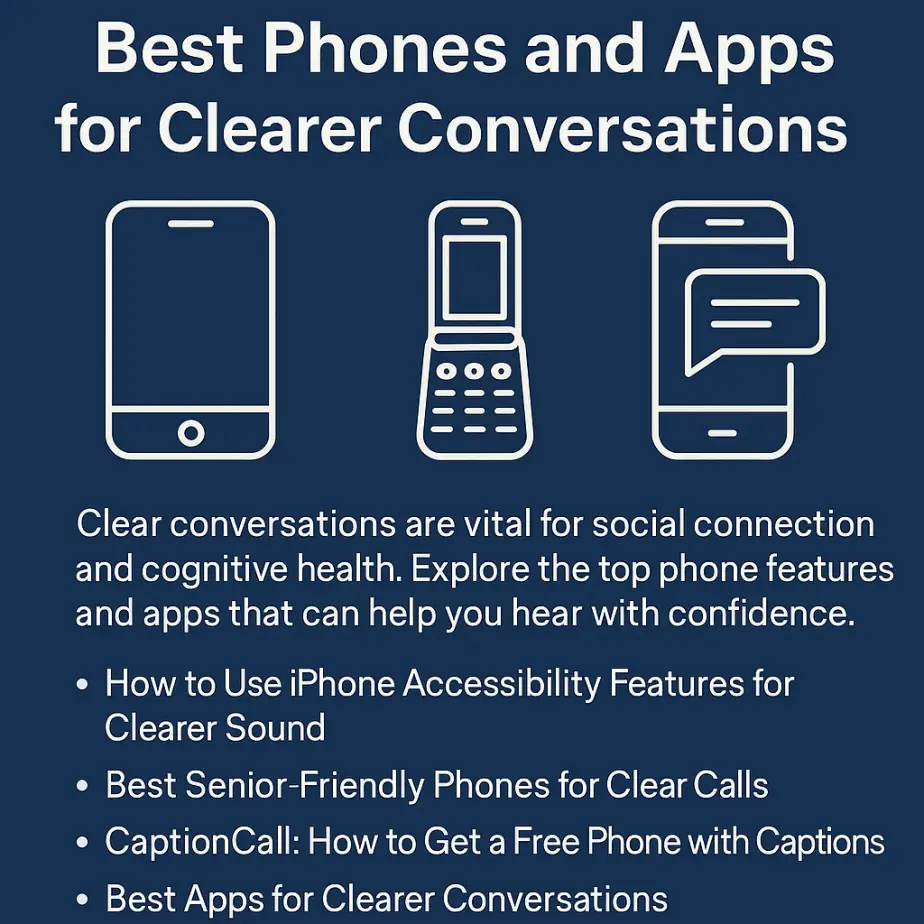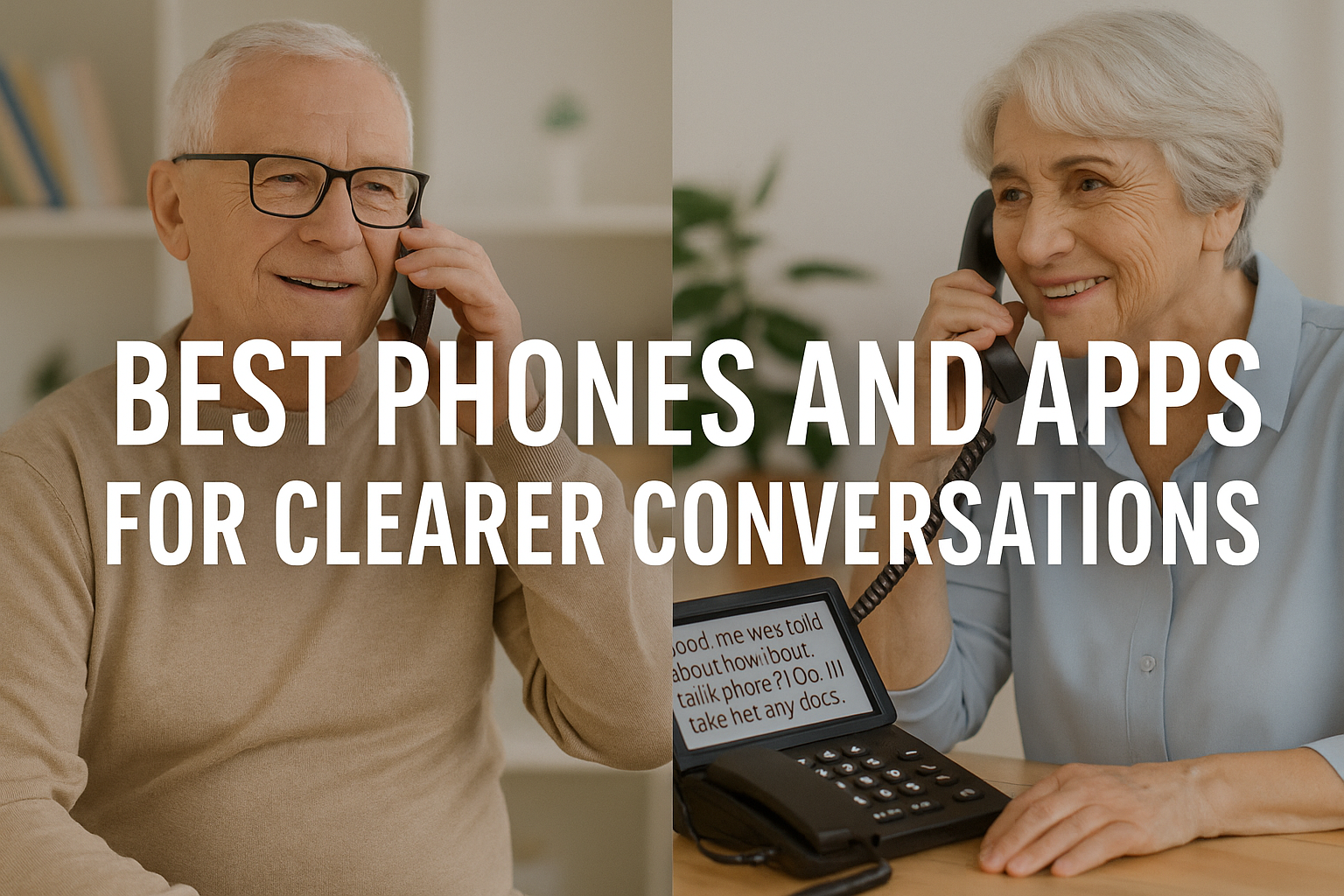Clear conversations are not just a matter of convenience—they are critical for mental health, cognitive function, and social connection. When calls are hard to understand, people often start avoiding them, which can snowball into isolation and even health risks.
Why Call Clarity Affects Your Life
Research shows that difficulty communicating by phone has ripple effects far beyond the moment of the call:
- Social isolation: A study in The Journals of Gerontology found that older adults with hearing difficulty were significantly more likely to experience loneliness, which in turn can contribute to depression and reduced quality of life (study link).
- Cognitive health: Johns Hopkins researchers have linked untreated hearing difficulties to faster rates of cognitive decline. Reduced social engagement—including avoiding phone calls—is one of the pathways that accelerates this decline (Johns Hopkins Medicine).
- Stress and fatigue: Straining to hear over poor-quality calls can cause listening fatigue. A 2018 study in Ear and Hearing demonstrated that even mild hearing loss significantly increases the mental effort required to follow speech in noise. Over time, this can be exhausting and discourage people from staying connected.
- Health and safety risks: Miscommunication on the phone—whether it’s medication instructions or emergency information—can have serious consequences. The National Institute on Deafness and Other Communication Disorders notes that communication barriers directly impact healthcare outcomes (NIDCD).
👉 In short, poor call clarity isn’t just annoying—it affects your relationships, brain health, and safety.
Why Phones and Apps Are Part of the Solution
Fortunately, technology is evolving to reduce these risks. Modern smartphones, captioning apps, and specialized home phones are designed not just to make voices louder, but clearer, sharper, and easier to process.
For example:
- Captioning services provide a visual backup, so you don’t have to worry about missing critical words.
- Noise reduction technology helps filter out the hum of traffic, fans, or background chatter.
- Hearing-aid–compatible devices route sound directly into your hearing aids, improving signal quality dramatically.
These tools don’t just enhance sound—they restore confidence in communication. And confidence is what leads people to pick up the phone again instead of avoiding it.
Key Features to Look for in a Phone or App
When choosing a phone or app, think less about brand names and more about the features that make a difference in real-world communication:
- Amplification & clarity – Phones should enhance the speech frequencies most important for understanding, not just get louder.
- Noise reduction – Essential for calls in noisy environments, such as restaurants or busy homes.
- Captioning support – Provides a safety net by letting you read what’s being said in real time.
- Hearing aid compatibility – Ensures seamless audio streaming into your devices for maximum clarity.
- Ease of use – Especially for seniors, a device should feel comfortable and simple, not overwhelming.
👉 We dive deeper into how each of these features works in our supporting guides.

Types of Solutions to Consider
Different people benefit from different technologies. Here are the main categories:
1. Smartphones
Modern iPhones and Android devices include built-in accessibility settings such as Live Listen, Live Transcribe, and personalized sound adjustments. For tech-savvy users, these can make everyday calls much clearer.
🔗 Read: How to Use iPhone Accessibility Features for Clearer Sound »
2. Simple Flip Phones
Not everyone needs apps or touchscreens. For many seniors, the best option is a straightforward flip phone with large buttons, clear speakers, and no distractions.
🔗 Read: Best Senior-Friendly Phones for Clear Calls »
3. Captioned Home Phones
For home use, CaptionCall phones provide free real-time captions for qualified users. They are especially helpful for individuals with significant hearing loss who want dependable conversations at home.
🔗 Read: How to Qualify for a Free CaptionCall Phone »
4. Apps That Improve Calls
From real-time transcription apps to hearing-assist tools, apps can bridge the gap between hearing and understanding. They’re also easy to try out without switching phones.
🔗 Read: Best Apps for Clearer Conversations »
Why You Should Care
Phones and apps for clear calls are not “nice-to-haves”—they’re essential tools for:
- Staying connected with loved ones
- Managing health with confidence
- Avoiding miscommunication at work
- Reducing frustration and fatigue
- Protecting cognitive health through active conversation
Technology can either be a barrier or a bridge. Choosing the right device or app makes the difference between strained communication and easy, natural conversations that improve your quality of life.
Next Steps
This guide gives you the big picture. To find what works best for you, explore our supporting articles:
- 📱 How to Use iPhone Accessibility Features for Clearer Sound
- 📞 Best Senior-Friendly Phones for Clear Calls
- 💬 Best Apps for Clearer Conversations
- 🏠 CaptionCall: How to Get a Free Phone with Captions
By making the right choice, you can transform phone calls from a source of frustration into a source of connection, confidence, and peace of mind.

